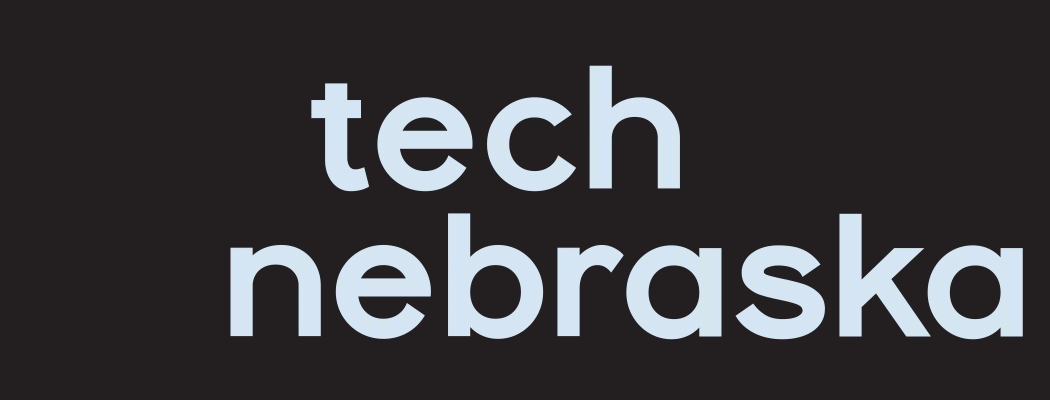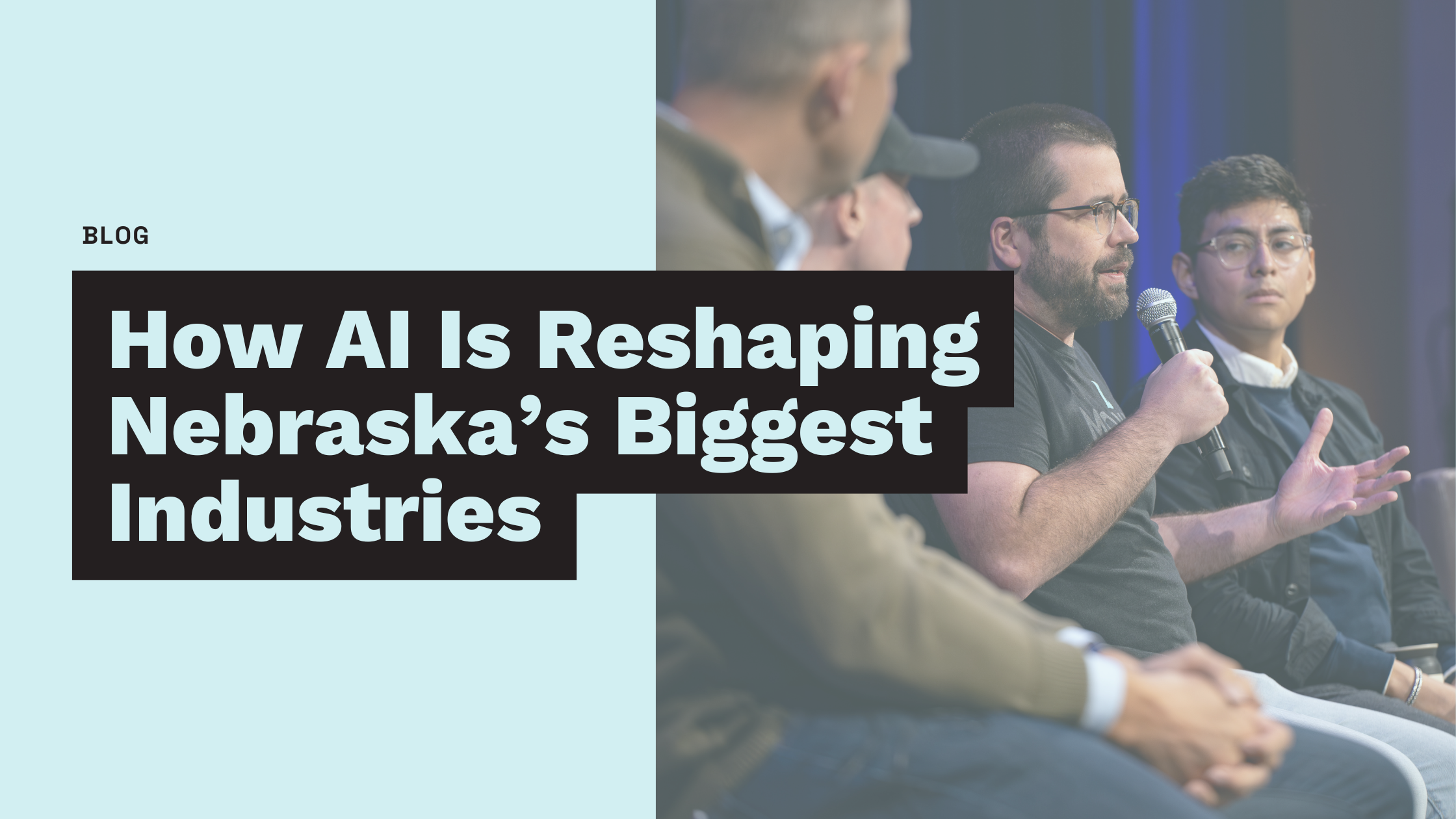AI is reshaping industries, economies, and daily life at an unprecedented pace. From the rapid rise of generative AI tools to high-stakes debates on regulation and workforce impact, the world is grappling with what artificial intelligence means for the future. While some states scramble to react, Nebraska has a chance to take a different approach—one that balances innovation with thoughtful policy.
Against this backdrop, a group of AI experts gathered to discuss how Nebraska can position itself as a leader in this ever evolving landscape. Moderated by Jack Horgan, an attorney and shareholder specializing in AI and Commerce and Technology Contracts at Koley Jessen, the conversation featured four leaders that eat, sleep, and breathe artificial intelligence: Luis Merino of Engage Vision, John Grange of OpsCompass and Move Venture Capital, Andrew Tarr of Don’t Panic Labs, and Brody Deren of Trility Consulting. Each panelist brought a unique perspective, tied together by a shared commitment to understanding how AI is shaping Nebraska’s industries—and how the state can prepare for what’s next.
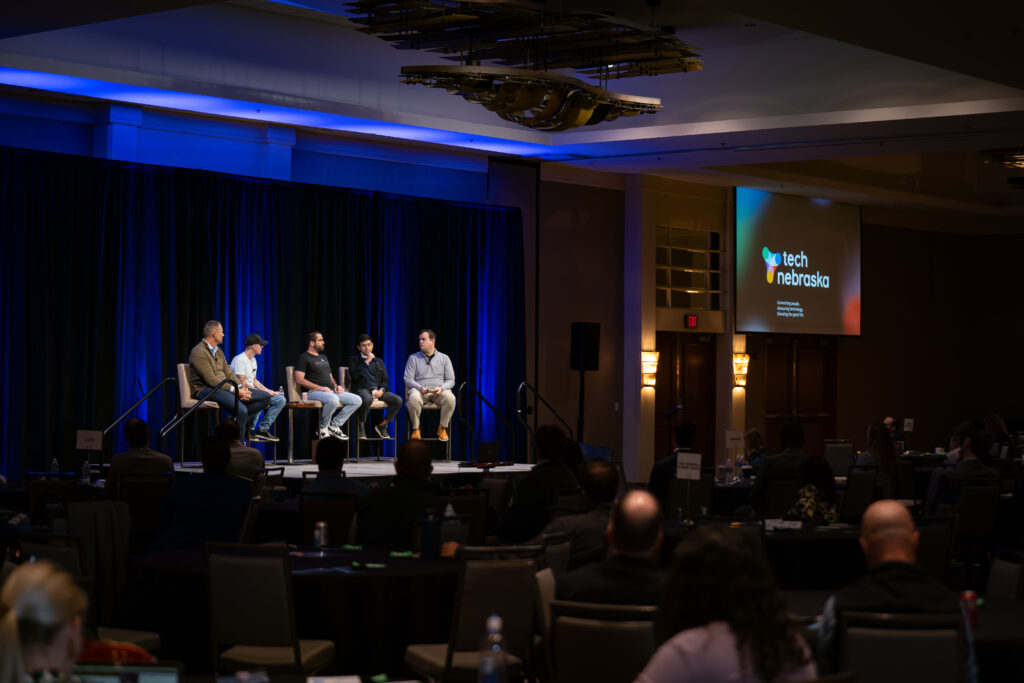
AI’s Growing Role Across Industries
The conversation quickly turned to AI’s real-world impact in Nebraska, particularly in key industries like agriculture, finance, healthcare, and manufacturing. Brody Deren set the tone with a striking example: Carson Wealth, a financial services company in Omaha, implemented AI to streamline customer inquiries, reducing response times and saving the equivalent of six full-time employees’ worth of work annually. “That’s 13,000 hours a year saved,” Deren explained, underscoring AI’s potential to drive efficiency while improving customer experience.
In manufacturing, AI is transforming how companies monitor production floors. Luis Merino detailed how Engage Vision uses AI-powered video analysis to automate tasks traditionally performed by field engineers. “We’re replicating the eyes of manufacturing staff to optimize safety and efficiency,” he said, describing how AI can instantly detect irregularities that might otherwise take hours to identify manually.
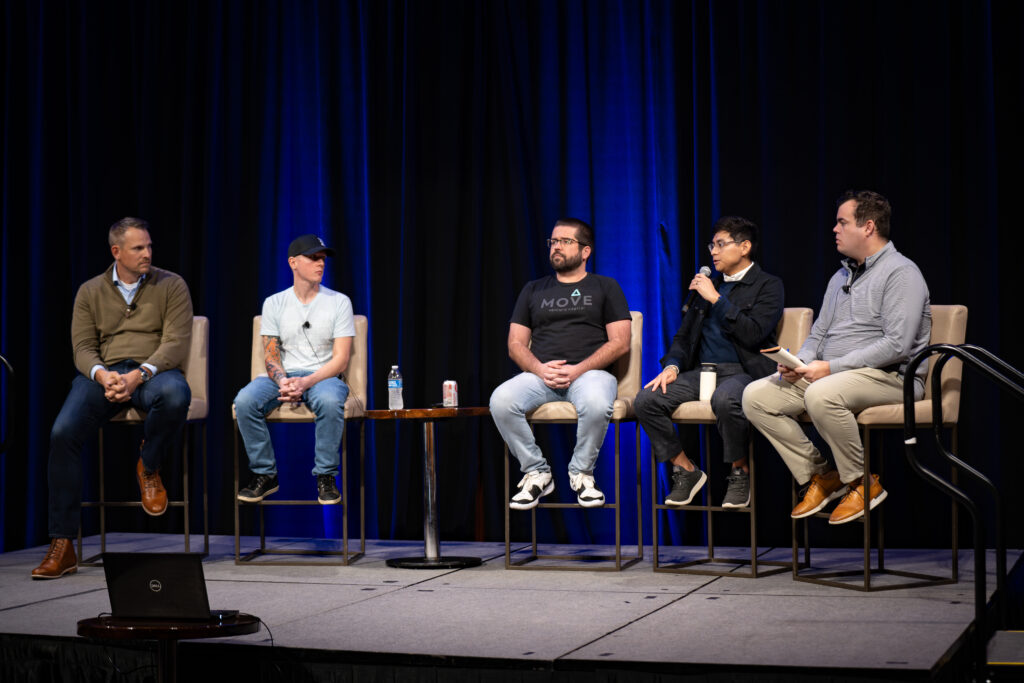
John Grange pointed out that AI’s biggest advantage may be its ability to bridge the digital and physical worlds. “We’re really good at physical things in Nebraska—agriculture, manufacturing,” he said. “AI isn’t just stuck in the software world anymore. It sees, it hears, it moves.” That shift, he argued, positions Nebraska uniquely for AI-driven innovation in industries that have long been centered on tangible production rather than purely digital products.
Strengths, Challenges, and AI’s Role in the Workforce
For all its promise, AI also raises significant questions—especially regarding Nebraska’s workforce. While AI’s potential for automation is clear, the panelists emphasized that businesses need to think carefully about how they deploy it. “You can’t just throw AI at a problem because it sounds good,” Merino cautioned. “You have to pause, ask the right questions, and figure out if there will actually be a return on investment.”
One of the most pressing concerns is how AI will affect jobs. Historically, Nebraska has been home to large numbers of call centers and administrative roles—positions that AI is poised to disrupt. Deren pointed to Klarna, a payments company that recently deployed an AI-driven customer service agent, reducing human-handled inquiries by 66% in its first month. “That’s the equivalent of 700 employees,” he said, illustrating how quickly AI can change workforce dynamics.
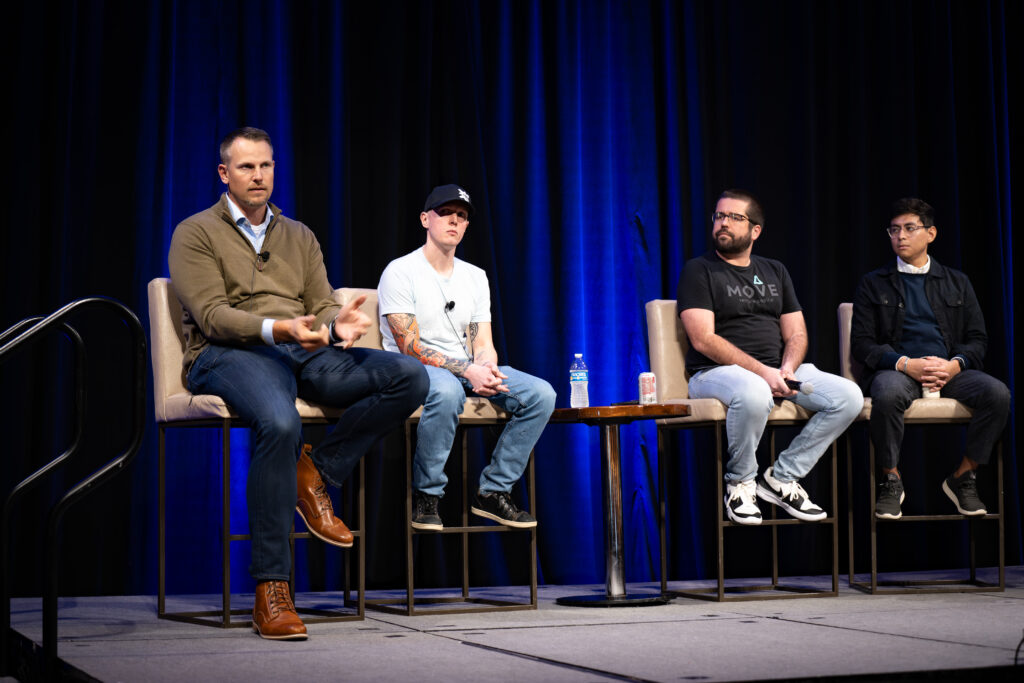
However, the panelists agreed that AI doesn’t just eliminate jobs—it also creates new ones. “The market will find a way,” Deren said. “We’ve seen this before with automation in manufacturing. The key is upskilling and making sure Nebraska workers are prepared for AI-augmented roles.” Tarr added that companies should focus on AI as a tool for efficiency rather than a replacement for human expertise. “If AI can take the repetitive stuff off people’s plates, they can focus on more meaningful work.”
Policy, Regulation, and Nebraska’s AI Future
As AI continues to evolve, regulation will inevitably follow. Privacy, data security, and workforce protections are all areas where policymakers will need to step in, and Nebraska has an opportunity to be proactive rather than reactive. Merino highlighted the complexity of AI-related data policies, noting that even seasoned technologists struggle to navigate the fine print of AI model training agreements. “Most users don’t realize that when they input data into OpenAI’s models, that data can be used for training unless they explicitly opt out,” he said. “We need clearer, more accessible policies.”
Grange took a broader view, urging Nebraska to position itself as a hub for AI innovation. “Some states are going to over-legislate AI out of fear,” he said. “Nebraska has a chance to be a place where AI companies want to build and invest.” He envisioned a future where machine learning engineers from around the world see Nebraska as a top destination for working with cutting-edge AI models and robotics.
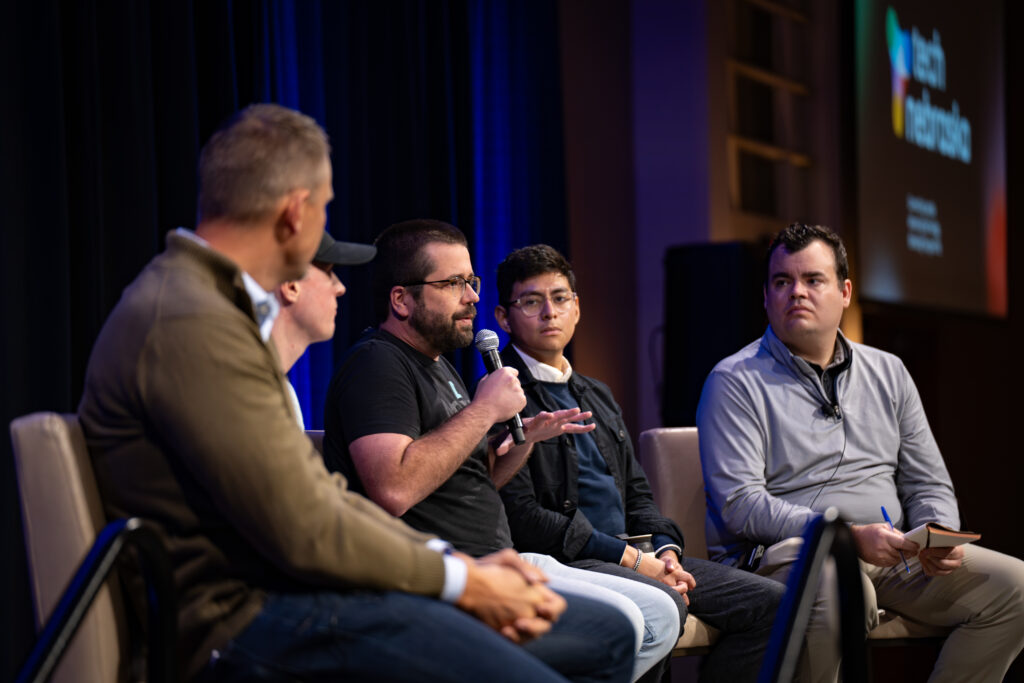
The Road Ahead
Looking ten years into the future, the panelists were optimistic. “If we can keep AI-driven innovation here, we can keep more people here,” Tarr said, addressing Nebraska’s longstanding challenge of retaining tech talent. Merino echoed that sentiment, predicting a surge of AI startups in the state. “We’re already seeing it—companies like Engage Vision, CodeBuddy, and others are proof that Nebraska has the talent and opportunity to lead in AI.”
The discussion closed with a call to action: Nebraska has the industry expertise, the entrepreneurial spirit, and the infrastructure to thrive in an AI-driven world. What’s needed now is a collective effort—from businesses, policymakers, and educators—to ensure the state isn’t just keeping up, but setting the pace.
